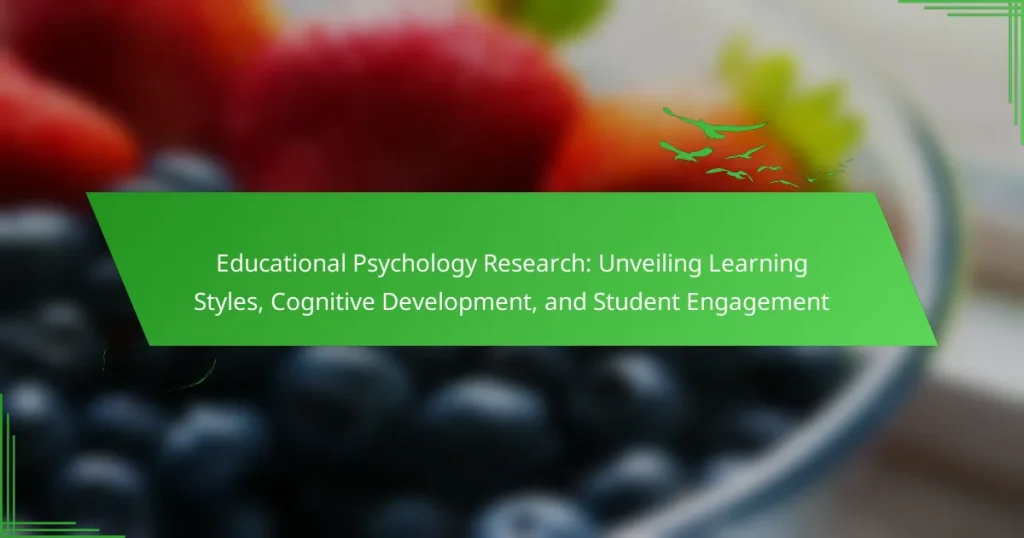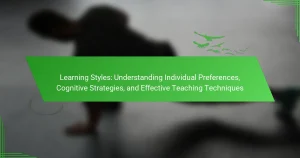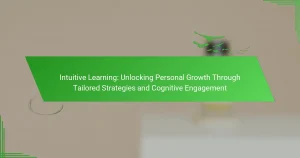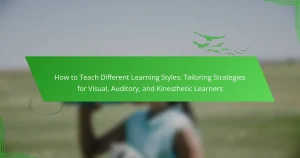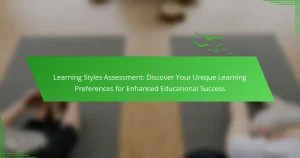Understanding how students learn is crucial for effective education. This article explores educational psychology research, focusing on learning styles, cognitive development stages, and strategies to enhance student engagement. By recognising individual learning preferences, educators can tailor their approaches to improve retention and comprehension. Additionally, insights into emotional intelligence and metacognitive strategies reveal new ways to foster a supportive learning environment.

What are the foundational principles of educational psychology?
The foundational principles of educational psychology focus on understanding how students learn and develop. Key principles include the recognition of diverse learning styles, the importance of cognitive development stages, and the necessity of fostering student engagement.
Understanding learning styles allows educators to tailor their teaching strategies to individual needs, enhancing learning outcomes. Cognitive development principles, based on theories from Piaget and Vygotsky, emphasise the stages of mental growth and the social context of learning. Engaging students through interactive and meaningful activities increases motivation and retention, making learning more effective.
By applying these principles, educators can create supportive learning environments that cater to the unique attributes of each student, ultimately improving educational experiences and outcomes.
How do learning styles influence educational outcomes?
Learning styles significantly influence educational outcomes by tailoring teaching methods to individual preferences. Research indicates that aligning instruction with a student’s preferred learning style can enhance engagement and retention. For example, visual learners benefit from diagrams, while auditory learners excel with discussions. This alignment fosters cognitive development, leading to improved academic performance. Understanding these styles allows educators to create more effective learning environments, ultimately supporting diverse student needs.
What role does cognitive development play in learning?
Cognitive development plays a crucial role in learning by shaping how students process information. It influences their ability to understand complex concepts, problem-solve, and apply knowledge in various contexts. For instance, Piaget’s stages of cognitive development suggest that learners progress through distinct phases, impacting their readiness for different types of learning experiences. Engaging students at the appropriate cognitive level enhances retention and application of knowledge, fostering deeper understanding.

What are the universal characteristics of learning styles?
Learning styles share universal characteristics that influence educational approaches. Key attributes include individual preferences for sensory modalities, such as visual, auditory, and kinesthetic learning. These preferences shape cognitive development and engagement strategies. Additionally, adaptability in teaching methods enhances student retention and understanding. Recognising these characteristics fosters a tailored learning environment.
How do visual, auditory, and kinesthetic learning styles differ?
Visual, auditory, and kinesthetic learning styles differ in how individuals prefer to absorb information. Visual learners thrive on images and diagrams, auditory learners excel with spoken words and sounds, while kinesthetic learners engage best through hands-on activities. Each style influences cognitive development and student engagement strategies in educational psychology. Understanding these differences enhances teaching methods and improves learning outcomes.
What are the implications of learning styles for teaching methods?
Learning styles significantly impact teaching methods by guiding educators to tailor their approaches for diverse learners. Understanding these styles enables teachers to enhance cognitive development and student engagement.
Research indicates that recognising individual learning preferences can improve retention and motivation. For example, visual learners benefit from diagrams, while auditory learners thrive with discussions. Adapting instructional strategies to these styles fosters a more inclusive learning environment.
Moreover, employing a variety of teaching methods can address unique attributes of students, promoting a deeper understanding of the material. This approach encourages active participation, leading to better academic outcomes.
Incorporating learning styles into curriculum design not only enhances educational effectiveness but also cultivates a positive classroom atmosphere, ultimately benefiting all students.

What unique attributes define effective student engagement?
Effective student engagement is defined by unique attributes such as active participation, emotional connection, and a sense of belonging. Active participation involves students contributing to discussions and activities, enhancing their learning experience. Emotional connection fosters motivation and interest, leading to deeper understanding. A sense of belonging creates a supportive environment, encouraging students to take risks and share ideas. These attributes collectively promote a richer educational experience and improve academic performance.
How can educators foster intrinsic motivation in students?
Educators can foster intrinsic motivation in students by creating a supportive learning environment. This involves promoting autonomy, providing meaningful feedback, and encouraging goal-setting. Research indicates that when students feel in control of their learning, their engagement and motivation increase significantly. For example, allowing choices in assignments can enhance a student’s sense of ownership. Additionally, emphasising mastery rather than performance can shift focus toward personal growth, further nurturing intrinsic motivation. Engaging students in self-reflection about their learning processes can also reinforce their intrinsic drive.
What strategies enhance active participation in the classroom?
Active participation in the classroom can be enhanced through various strategies. Techniques such as collaborative learning, where students work together on tasks, foster engagement. Incorporating technology, like interactive quizzes or discussion forums, also boosts participation. Additionally, providing choices in assignments allows students to connect with the material personally, increasing motivation. Regular feedback helps students feel valued and encourages their involvement.

What rare insights have emerged from recent educational psychology research?
Recent educational psychology research reveals rare insights into the impact of emotional intelligence on student engagement. Studies indicate that students with higher emotional intelligence demonstrate better academic performance and stronger social skills. This suggests that fostering emotional intelligence in educational settings could enhance overall learning outcomes. Additionally, research highlights the significance of metacognitive strategies, showing that students who are aware of their learning processes tend to engage more deeply with the material. These insights challenge traditional views on intelligence, emphasising the multifaceted nature of learning.
How does neurodiversity impact learning styles?
Neurodiversity significantly influences learning styles by highlighting the diverse cognitive strengths of individuals. This variation can lead to unique approaches in understanding and processing information. For example, students with ADHD may excel in hands-on learning, while those with dyslexia might benefit from visual aids. Research indicates that tailored educational strategies enhance engagement and retention for neurodiverse learners. Emphasising these differences fosters an inclusive environment that accommodates various learning preferences.
What innovative practices are being implemented in UK schools?
UK schools are implementing innovative practices focused on personalised learning, technology integration, and mental health support. These approaches enhance student engagement and cognitive development.
Personalised learning initiatives allow educators to tailor instruction to individual learning styles, promoting better outcomes. For example, differentiated instruction strategies cater to diverse student needs, fostering a more inclusive environment.
Technology integration includes the use of digital tools and platforms that facilitate interactive learning experiences. Schools are adopting blended learning models that combine traditional teaching with online resources, increasing accessibility and engagement.
Mental health support programmes are becoming essential, addressing student well-being and cognitive development. Schools are incorporating mindfulness practices and social-emotional learning into curricula, which have shown positive impacts on student engagement and academic performance.
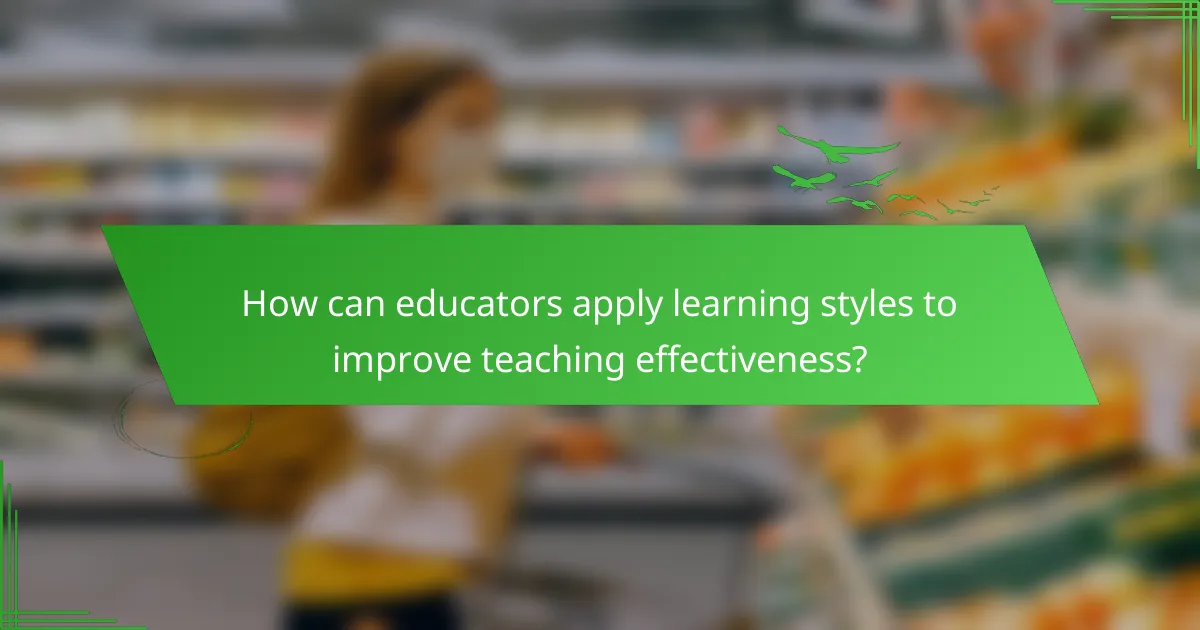
How can educators apply learning styles to improve teaching effectiveness?
Educators can enhance teaching effectiveness by integrating learning styles into their strategies. Tailoring instruction to various learning preferences increases student engagement and cognitive development. Research indicates that when educators recognise and adapt to individual learning styles, such as visual, auditory, or kinesthetic, students demonstrate improved retention and comprehension. Implementing differentiated instruction techniques further supports diverse learners, fostering a more inclusive classroom environment. Regular assessments can help educators refine their approaches based on student feedback and performance, ensuring continuous improvement in teaching methods.
What best practices should teachers adopt for diverse learners?
Teachers should adopt inclusive strategies that cater to diverse learners’ needs. Differentiated instruction is essential, allowing for varied teaching methods to accommodate different learning styles. Utilising formative assessments helps identify individual strengths and areas for improvement. Collaborative learning fosters peer interaction, enhancing engagement and understanding. Incorporating technology can provide personalised learning experiences, making content accessible for all students. Finally, creating a supportive classroom environment encourages risk-taking and resilience among learners.
What common mistakes should be avoided when addressing learning styles?
To effectively address learning styles, avoid common mistakes such as oversimplifying categorisation, ignoring individual differences, and relying solely on one learning style. These errors can hinder cognitive development and student engagement. Research indicates that learners often exhibit a blend of styles, making it essential to adopt a more nuanced approach. Additionally, neglecting to integrate various teaching methods can limit engagement and retention. Finally, failing to assess the effectiveness of strategies can lead to stagnation in educational practices.
What are the latest trends in educational psychology research?
Recent trends in educational psychology research focus on personalised learning, the impact of technology on cognitive development, and strategies to enhance student engagement. Researchers emphasise the significance of understanding diverse learning styles to tailor educational approaches effectively. Additionally, there is a growing interest in the role of social-emotional learning in fostering resilience and motivation among students. Innovative methodologies, including neuroimaging and data analytics, are being employed to gain deeper insights into cognitive processes. These trends reflect a shift towards a more holistic understanding of the learning experience.
